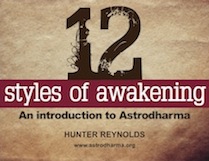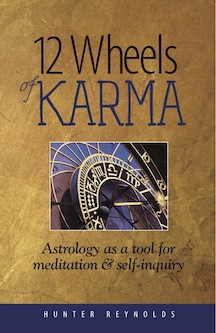 IT WAS NEVER GUARANTEED that there would be unlimited future generations of earthlings. Fine. As a faraway fate that awaits some future generation, mind can pretend to cope with earth’s seasonal die-offs. Alas, the specter of depopulation appears to have arrived a tad early – or so sings a growing choir of climate-priests. Judging by our collective descent into digitally productive numbness, this thickening apocalyptic air is entirely indigestible.
IT WAS NEVER GUARANTEED that there would be unlimited future generations of earthlings. Fine. As a faraway fate that awaits some future generation, mind can pretend to cope with earth’s seasonal die-offs. Alas, the specter of depopulation appears to have arrived a tad early – or so sings a growing choir of climate-priests. Judging by our collective descent into digitally productive numbness, this thickening apocalyptic air is entirely indigestible.
The toxic fallout of “too big to fail” is, it seems, too big to feel. Even the environmental activists seem to have downsized their aspirations, inviting us all to become steely-eyed hospice workers for a dying planet. In this article, I hope to shed some light on how we got here and how, by combining astro-literacy with Buddhist self-inquiry, we might inspire the compassionate presence needed – if not to avert a culling, to catapult our ever-evolving souls into more upwardly spiraling incarnations.
Before proceeding to the Astro-self-inquiry questions, let’s generate some authentic self-realization fire by confessing the ways that our unwitnessed ego has contributed to the global unraveling. Don’t see your mind at play in all four of the following precepts? Dare to confess there, and your lukewarm commitment to awakening just might turn red hot.
The Buddhist Bottom-line
1) The mind-made sense of self does not want to be here. The first step in cleaning up our inner climate crisis is confessing that we, as earthbound egos, don’t really want to be here. We are insufficiently moved to save the world we have been conditioned to see.
2) The mind-made sense of self is depressed. The perception of an inert, hard-edged planet (vs. a seamless field of sentience dancing with oracular signs and symbols) goes in, first and foremost, as depressing evidence of separation. Lush green or industrial grey, this is a frightening, ego-orphaning place. This is not a problem, mind you. That’s earth’s job, It was designed to disillusion and disrupt our habit of taking refuge in the time bound and changeful so that we might awaken as the timeless presence in which it rises and falls.
Ngak’chang Rinpoche put it this way: “Disgust with samsara is simply the knowledge that no matter how wonderful we make our lives, we can never reach a point at which we can rest in that pleasure. The fruit of desire is empty, and as glorious only as the path toward its attainment.”
3) The mind-made sense of self prefers a gritty, depressing world to an divinely alive, omen-drenched one. Depression provides orientation, identity and point of view; it’s a feeling that springs from the ego’s presumptuous belief that it knows who and where it is. Moving through a seamless field of sentience, on the other hand, eats away at the me-story’s imaginary edges and demands a courageous, meditative embrace of not-knowing. Bottom line: planetary demise is irreversible until we individually and collectively confess how the unfolding ecocidal drama provides reassuring continuity to our dutifully orphaned sense of self.
4) Every attempt made by the mind-made sense of self to save this hard-edged planet only kills it further. The only world we ever actually, experience – and, thus, the only world we can ever palpably “save” – is the mind-killingly incomprehensible, presence-evoking one directly in front of us. Every attempt to improve the hard-edged, mental abstraction we call “the planet” or “my life” only feeds the ego-orphaning paradigm that makes us want to tear it down. Bottom line: it’s impossible to save an unconsciously cursed world. Since the ephemeral narrative of our separate sense of self (ego) is compelled to grasp for a sense of solidity by grasping at the world’s flickering pleasures or cursing its unreliable transience, the practice of awakening as the timeless presence that is actually “having” this personality is the most “green” move we will ever make.
Now that we’ve confessed our ego’s secret, paradigmatic contribution to the current unraveling, let’s look at the ontological opportunities of this precious, precarious time. After all, if, in fact, earth’s orgy of me-stories is unfolding within a larger, ever-evolving Being, even ritual suicide must exude a fragrance of grace.
“Why am I here?” vs. “As what am I here?”
As the planet roils and the foundations of society continue to crack, I have noticed an uptick in clients (particularly young people) asking unusually straightforward metaphysical questions like, “Why am I here?” From an Astrodharmic perspective, this question (noble as it seems) is actually a heady dodge from a more fruitful, ego-dissolving question: “As what am I here?” Indeed, our poisoned outer atmosphere is a mighty metaphor for the me-story-choked atmosphere from which we speak and act. Conceptually stumping questions like “As what are you speaking?” are permutations of the root question, “Who am I?” which, when deeply meditated on, is one of the core practices of Advaita Vedanta, an ancient nondual path of self-realization born in India, rooted in the Upanishads.
Something amazing happens when these “Who am I?” questions join hands with the archetypal insights of astrology. Suddenly it becomes possible to formulate a body of self-inquiry questions that strike at the very root of each ego’s me-story. This Astro-Advaita approach also provides a kind of comprehensive checklist that, when inquired into regularly, can expose, and scrub us clean of all manner of me-story enslavements.
Remember, there are no conceptual answers to these questions. The point is to let each question escort you to the cliff edge of thought so you can jump into timeless presence.
Suggestion: forget about your Sun sign, etc. At different times in our lives, we will likely have need for every one of these ego-dissolving self-inquiries. As a spiritual practice, try posting and reading through this list every day for one month, asking, “Which of these inquiries is most mind-silencing and presence-arousing for me today?” For maximal impact, try asking someone else to read the question to you. Then allow yourself to be stumped into pure awareness as a more spacious, tongue-in-cheek kind of personality takes shape. There. Now you’re no longer looking out through the lens of a dying mind seeking affinity from a dying planet. Here’s a short video to get you in the mood.
Astro-Advaita Questions
1. Aries: As what are you fearing forward? What watches the impulse to individuate? Is presence daring or timid?
2. Taurus: As what are you secure? What watches the desire for steady ground? Is presence solid or crumbling?
3. Gemini: As what are you speaking? What studies shifting attention? Is presence stimulated or bored?
4. Cancer: As what are you offering nurture? What watches the impulse to comfort? Does presence care or not care?
5. Leo: As what are you confident? What watches the impulse to perform? Is presence average or exceptional?
6. Virgo: As what are you critiquing? What watches the urge to edit and improve? Is presence flawed or perfect?
7. Libra: As what are you being kind? What watches the impulse to peace-keep? Is presence polite or tactless?
8. Scorpio: As what are you psychologically penetrating? What watches the desire to unveil? Is presence deep or superficial?
9. Sagittarius: As what are you truth-telling? What watches ownership of belief? Is presence smart or simple-minded?
10. Capricorn: As what are you being responsible? What watches status come and go? Can presence fail or be successful?
11. Aquarius: As what are you asserting freedom? What watches the urge for independence? Is presence bound or unencumbered?
12. Pisces: As what are you empathizing? What watches the urge to merge? Does presence commiserate or turn away?
Ready for more?
Learn about the upcoming Styles of Awakening online training >
Learn about the upcoming online class about the astrological cycles of the moon >
Schedule an astrology reading with Hunter >
Subscribe to Styles of Awakening Newsletter (monthly) >
Subscribe to posts by email >
Like this article? Share it with friends:


 Get free newsletter & e-book
Get free newsletter & e-book